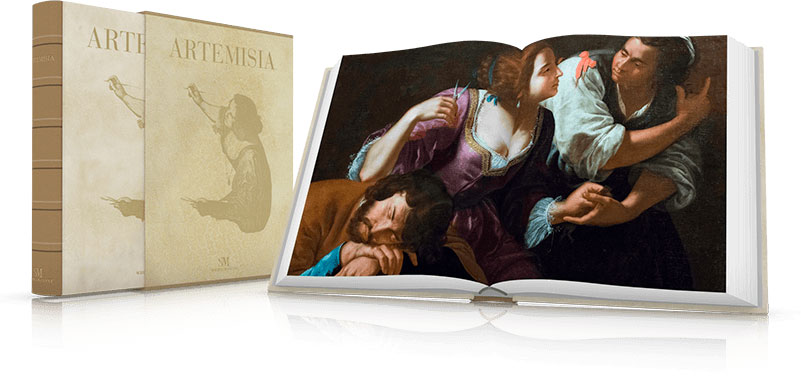|

|
Artemisia
Gentileschi | Collezione
Rinascimento Sublime
Artemisia Eccentrica
Edited by
Asia Graziano
Texts by Asia Asia Graziano,
Sheila Barker, Gregory
Buchakjian, Claudio Strinati
Bilingual Italian-English
30 x 40 cm, 256 pages, 160
images.
Published by Scripta
Maneant, Bologne
ISBN 979-12-80717-24-5
Artemisia
Gentileschi
| Collezione Rinascimento
Sublime
Artemisia Eccentrica
Sous la direction de Asia
Graziano
Textes par Asia Asia
Graziano, Sheila Barker,
Gregory Buchakjian,
Claudio Strinati
Bilingue Italien-Anglais
30 x 40 cm, 256 pages, 160
ill.
Publié par Scripta
Maneant, Bologne
ISBN 979-12-80717-24-5
|
Excerpt:
"For the past three
years I have been
wondering what Artemisia
Gentileschi would have
thought of this peculiar
story. Discoveries of
lost masterpieces happen
from time to time. They
are the art historian,
the collector and the
museum curator’s dream.
In the past decades, the
corpus of Artemisia was
enriched with “new”
substantial works like
the Lucretia that was
auctioned in France and
ultimately joined the
Getty. Nevertheless,
what made the Beirut
story unique is
violence. Returning to
the question raised in
the first paragraph
regarding how women
artists should be
addressed, I would
answer here: as women
and as artists. The
violence Artemisia
endured in her life; she
endured it because she
was a woman. She
expressed this violence
through her art.
Nonetheless, the Uffizi
and Capodimonte Judith
Beheading Holofernes,
are without doubt among
of the most iconic and
memorable pieces of
baroque painting even
for a viewer who doesn’t
know anything about the
artist. Hercules and
Omphale and Penitent
Magdalene came under the
spotlights in a region
of the world that is
known for its endless
cycles of violence –
including depravation of
rights towards women –
and wars, precisely
after one of the biggest
non-nuclear explosions
in history. It is not a
meaningless coincidence;
it is a redemptive
sign."
|
|
|
|
|